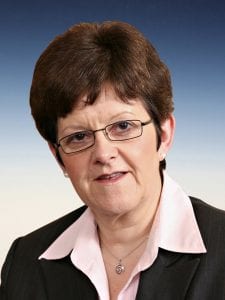Accountancy practices are always seeking ways to improve working efficiency, so that they can put their focus into delivering more strategic advice to their clients, rather than simply number crunching. Anne Brady of Dublin based practice, I first met Anne at a Chartered Accountants conference some years ago, where she was a speaker on the subject of practice management. Anne is a member of the Information Technology Services Committee of Chartered Accountants Ireland, which works to heighten awareness and adoption of IT by Chartered Accountants Ireland members to effect business efficiency. To this end it develops help sheets and organises IT events with industry leaders. A major element of its work is to promote the development and acceptance of XBRL (eXtensible Business Reporting Language) in Ireland, which will soon be mandatory for companies filing tax returns in Ireland.
- XBRL allows financial statements to be written in an electronic format that is possible to import into a computer program and manipulate.
- XRBL is already mandatory for companies filing with the SEC in the US, and with the Tax Authorities in the UK. Anne has a keen interest in technology and the benefits it can bring to business.
Indeed Anne and I meet mainly online, via LinkedIn and blogs. We recently met in the real world again, when Anne chaired one of the Chartered Accountants technology seminars that I spoke at, and it was then that she kindly agreed to do this interview.
What profile of clients does Anne Brady McQuillans DFK service?
Anne Brady McQuillans DFK is part of DFK International, a worldwide association of independent accounting firms. Our membership enables us to provide advice on international business and tax returns. Besides servicing for Foreign Direct Investors our clients range from public organisations, charities, incorporated and incorporated private business to personal clients.
Related: The Reality of Virtual Workers; An Interview with UK Accountants, Richard Place Dobson
What kind of services does your firm provide?
We provide all the services you would find in a larger organisation and we tailor them to the SME market. Our services include Audit, Taxation, Foreign Direct Investment, International Corporate Taxation, Accounting & Outsourcing, Corporate Finance & Business Advisory Services, Corporate Governance, Business Recovery & Insolvency, Financial Planning & Wealth Management, Succession Planning, IT Consultancy & Training, Grant Applications and Cloud Computing.
How many partners and staff are there?
We have two partners, five managers and 20 staff members.
What inspired you to move the practice into the cloud?
In January 2010, I attended a Technology seminar held in Chartered Accountants Ireland; I was very interested in Cloud Computing from there on in.
What does being “in the cloud” actually mean in practical terms for you and your staff on a daily basis?
In practical terms it means we can now access our applications through our website portal. The benefits of running our application in the cloud are:
- Anywhere/anytime access to data
- Improved reliability and security of data
- Software that’s up-to-date with less malware
- Positive impact on our bottom line as we pay only for what we use
- The cloud is tailor-made for monthly payment plans
- The cloud encourages use of standard systems, which often means that little or no IT support is needed
Related: Using An App for Marketing: Appland Thinking Harnessed By RedOakSnap
What programmes and functions are managed in the cloud?
Everything, we are fully virtualised.
Was there a sharp learning curve involved in moving your operation to the cloud?
No, we did comprehensive compliance and substantive acceptance testing before going “live”.
With the benefit of hindsight, is there anything that you would do differently if you were moving to the cloud now?
We had a very long trial period, maybe in hindsight; we could have done this a bit quicker.
What kind of IT support do you need both internally and externally from your cloud provider?
It is a partnership really, so they need understanding of our business. One of our staff members is designated as the coordinator for IT issues with Novosco, our cloud computing provider. All queries go through him.
You now have two years of cloud experience behind you. What operational benefits has it brought to the practice?
Cost savings, reduced downtime and more office mobility are the main benefits we have experienced.
Does being in the cloud bring any benefits to your clients?
Yes, we are more accessible, especially for audit staff if they are out with a client, another client can still contact them and our staff can access any files on the system.
What advice would you give to a professional firm considering moving their operations to the cloud?
Plan, plan, plan.
Related: Cloud computing: what’s in it for my business?
What is next for Anne Brady McQuillans DFK?
Our next move is into VOIP Technology so that we can streamline telecommunications while reducing total cost. Voice over IP systems promise to increase productivity while lowering costs – a win-win situation for businesses. The basis of this claim is the technology’s convergence of voice and data onto a single unified network. Users enjoy easier access to information, greater flexibility, and more advanced functionality. The streamlined infrastructure is easier and cheaper to maintain than traditional telecommunication systems.
Thank you to Anne for sharing your firm’s experience in this interview. Have you had experience of moving your firm to the cloud? Share your thoughts in the comments below!


